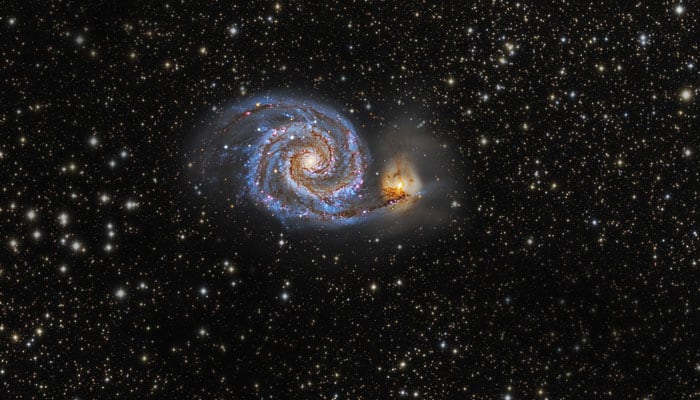New York: In a first, a team of astronomers has found that the Milky Way's halo is spinning in the same direction and at comparable speed as the galaxy's disk -- providing a potential explanation for the "missing" mass of our galaxy.
"This flies in the face of expectations. People just assumed that the disk of the Milky Way spins while this enormous reservoir of hot gas is stationary -- but that is wrong. This hot gas reservoir is rotating as well, just not quite as fast as the disk," said Edmund Hodges-Kluck from the University of Michigan.
The new knowledge sheds light on how individual atoms have assembled into stars, planets and galaxies like our own, and what the future holds for these galaxies.
The researchers used the archival data obtained by XMM-Newton -- a European Space Agency telescope. The results of their analysis was recently published in the Astrophysical Journal.
According to the team, our galaxy's hot gaseous halo is several times larger than the Milky Way disk and composed of ionised plasma.
Because motion produces a shift in the wavelength of light, the U-M researchers measured such shifts around the sky using lines of very hot oxygen.
What they found was groundbreaking: The line shifts measured by the researchers show that the galaxy's halo spins in the same direction as the disk of the Milky Way and at a similar speed -- 643737.6 kmph for the halo versus 869045.76 kmph for the disk.
Scientists have long puzzled over why almost all galaxies, including the Milky Way, seem to lack most of the matter that they otherwise would expect to find.
Astronomers believe that about 80 per cent of the matter in the universe is the mysterious "dark matter" that, so far, can only be detected by its gravitational pull. But even most of the remaining 20 per cent of "normal" matter is missing from galaxy disks.
According to the researchers, learning about the direction and speed of the spinning halo can help us learn both how the material got there in the first place and the rate at which we expect the matter to settle into the galaxy.
















